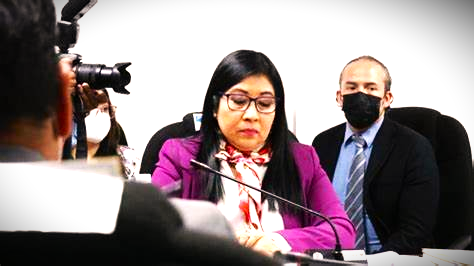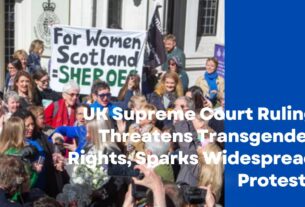San Salvador, El Salvador – In the dead of night on May 18, 2025, police arrived at the home of Ruth Eleonora López, a prominent human rights lawyer and the Director of Anti-Corruption and Justice at Cristosal. Without warning or a detailed explanation, they arrested her on embezzlement charges that remain shrouded in opacity. But for those familiar with the escalating repression under President Nayib Bukele’s administration, the message behind the arrest was crystal clear: dissent will be punished.
López’s detention is not just an isolated legal action, it’s a chilling signal in an already frigid climate for civil liberties in El Salvador. As a fearless anti-corruption advocate, López has spent years pulling back the curtain on the inner workings of a government increasingly intolerant of scrutiny. Her arrest, critics argue, is less about justice and more about silencing one of the last remaining voices of accountability.
Bukele’s War on Dissent
Since assuming office, President Bukele has styled himself as a populist reformer, but his administration’s approach to critics paints a darker picture. Journalists, religious leaders, and civil society figures have been branded “gang sympathizers” and subjected to targeted smear campaigns, legal harassment, and even exile. This authoritarian playbook has forced prominent investigative outlets like El Faro to flee the country, while others operate under the shadow of Pegasus spyware and legal threats.
López’s arrest comes just days after Bukele introduced a proposed “foreign agents” bill that would slap a 30% tax on foreign funding received by NGOs and independent media. International watchdogs say the measure is modeled after repressive laws in Russia and Nicaragua, designed not for transparency, but to muzzle and stigmatize civil society.
A Calculated Message
Juanita Goebertus, Americas director at Human Rights Watch, described the arrest as “part of increased efforts to silence critics of the Bukele government.” Indeed, the pattern is hard to ignore: López joins a growing list of Salvadorans lawyers, journalists, pastors who have been detained or intimidated simply for opposing government overreach.
No evidence has been presented to support the embezzlement claim. No trial date has been set. And no explanation has been given for the nocturnal arrest. The absence of due process has raised alarms both domestically and internationally.
International Crossroads
The international community now faces a defining test: will they treat López’s arrest as a red flag or a footnote? Human Rights Watch has called on foreign governments to demand her immediate legal representation, ensure her safety, and push back against the foreign agents bill.
If past patterns hold, López may soon join the growing Salvadoran diaspora of exiled reformers. But her detention may also serve as a tipping point, a moment when the illusion of democratic governance in El Salvador finally breaks under the weight of its contradictions.
The Cost of Silence
As Ruth López sits behind bars, the rest of El Salvador watches and waits. Her arrest is more than a personal tragedy; it is a test of how far authoritarianism can go when cloaked in the rhetoric of public security and nationalism. Unless there is sustained international pressure and domestic resistance, El Salvador risks becoming another cautionary tale of democratic backsliding in Latin America.
In a country where asking hard questions is increasingly treated as a criminal act, Ruth López dared to speak truth to power. Now, the world must decide whether her voice will be buried or echoed.




